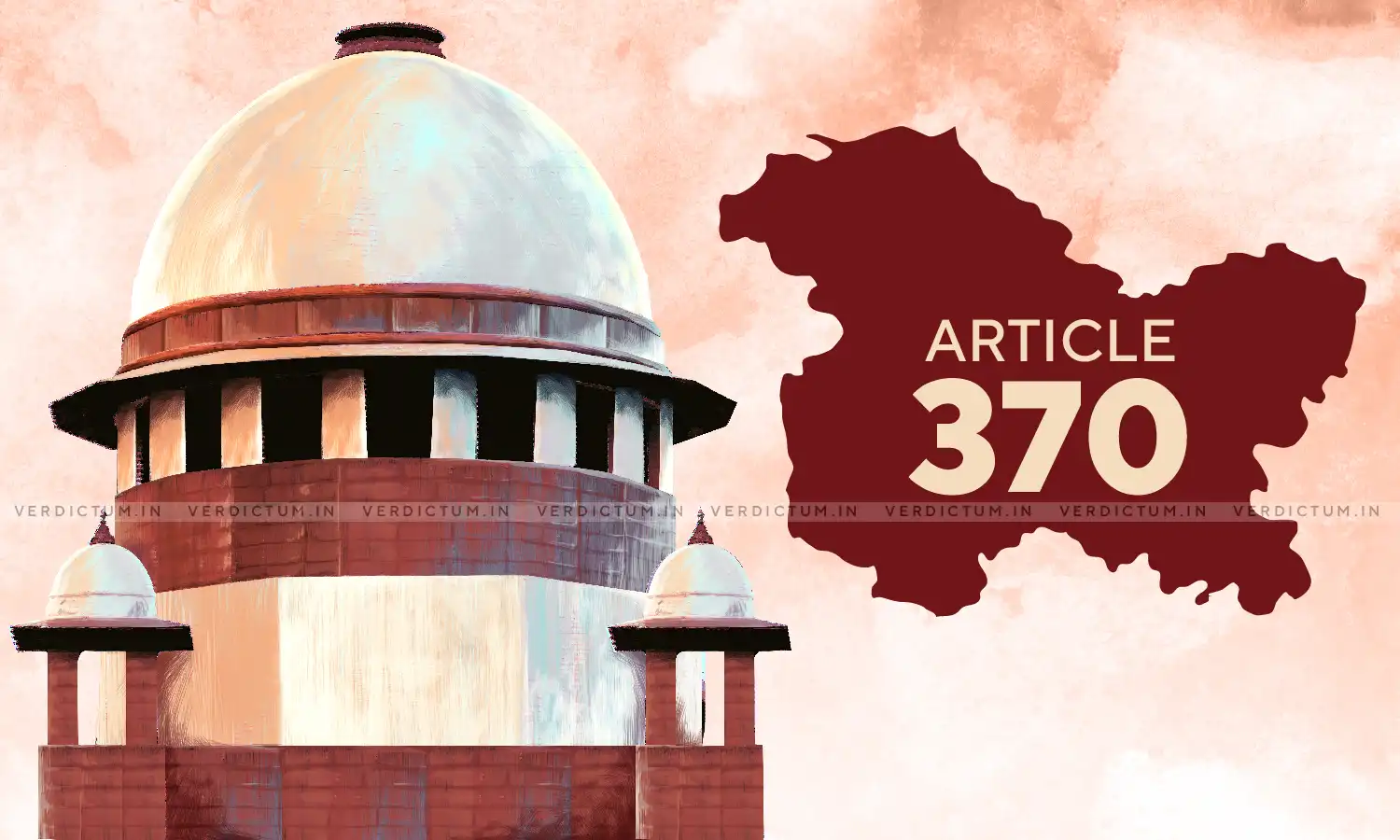Legal Solution For True Integration Of State And Its People With India Imperative: Law Student Seeks Impleadment In Article 370 Case In SC
Nikhil Upadhyay a 5th-semester law student and son of Adv. Ashwini Kumar Upadhyay has filed an Impleadment Application in a Writ Petition pending before the Supreme Court challenging the abrogation of Article 370.
The Applicant has prayed before the Court to hear his arguments and implead him as Respondent No. 3 in the case of Radha Kumar & Ors. v. Union of India & Another [W.P. (Civil) No. 1070 of 2019]. The application has been filed through Advocate-on-Record Ashwini Kumar Dubey.
Upadhyay has contended before the Apex Court that he is sincerely and seriously interested in unity and national integrity and firmly believes that J&K is an integral part of India.
Further, the applicant has urged that Article 370 was intended to be temporary, transitional and special provision and was not meant to be permanent. In fact, Article 370 contains within itself the mechanism of its erosion.
Additionally, the applicant has contended that Article 370 provides the route for the full and complete integration of J&K within India and its own redundance.
Also, it was contended that the distribution of powers contemplated by Article 370 is not intended to be permanent. There is clear indication in Article 370 itself that steadily powers and matters which were not available to the Parliament would be brought within its fold and State of J&K would be subjected to all the provisions of the Constitution in manner applicable to other states/U.T.
The applicant further urged that it is preposterous to suggest that the J&K Constitution, 1957 stands independent and parallel to the Constitution of India and that after the cessation of the J&K Constituent Assembly in 1957 (26.01.1957) Article 370 stood frozen and its autonomy as on 1957 became permanent. It is also incorrect to say that Article 370 is a permanent feature of the Constitution.
Upadhyay also submitted that all the instruments of accessions were executed qua India under the India (Provisional Constitution) Order, 1947 which was issued as per Section 8 of the Indian Independence Act, 1947 read with the Government of India Act, 1935. These Instruments enable the execution of an Instrument of Accession by the Ruler of an Indian State. These Instruments enable the execution of an Instrument of Accession by the Ruler of an Indian State. Hence, post-independence there could not be a conditional execution of the Accession Instrument.
The applicant supported his contentions by including some of the following precedents, namely - P.N. Kaul (AIR 1959 SC 749), R. Shagoo (AIR 1960 SC 1); Sampad Prakash [(1969) 2 SCR 365]; and P. Lakhan Pal [(1962) 1 SCR 688].
Upadhyay also urged that it is beyond any pale of doubt that at the time of its drafting, the intent behind incorporating a special provision for the State of Jammu and Kashmir was necessitated in light of the then prevailing social-political conditions, and more relevantly the Instrument of Accession as entered into between the Union of India and the then Ruler of the State.
It was urged that it is imperative to find a legal solution for the true integration of the State and its people with the Union of India. Therefore, it was submitted that the Special Constitution for the state of J&K had become redundant and expendable, a curious anomaly had arisen which potentially shakes the foundational principle of Article 370 being a 'temporary provision.'
The applicant has further contended - It is respectfully submitted that the direct effect of the above is that through this backhanded sleight, an attempt is sought to be made to evergreen the provision of Article 370, which is anomalous for the many reasons: (i). It curtails the wide powers of the President to exercise her powers under Clause (3) of Article 370; (ii). The proviso is thus made to govern the principle provision, that is to say, it creates the anomalous circumstance whereby, by rendering the proviso otiose, the substantive power under the main clause i.e., Article 370(3) has been put in cold storage in perpetuity; and (iii). Eternal perpetuation of a provision through a sleight, when the said provision was ex facie intended to be temporary is a massive fraud on the Constitution of India.
The applicant has prayed before the Apex Court for the issuance of a writ, order, or a direction including a writ of mandamus to declare that proviso of Article 370(3) lapsed with the dissolution of the J & K Constituent Assembly, dissolved on 26.01.1957 and/has been restricted to the directory only / not mandatory.
Click here to read/download Application




